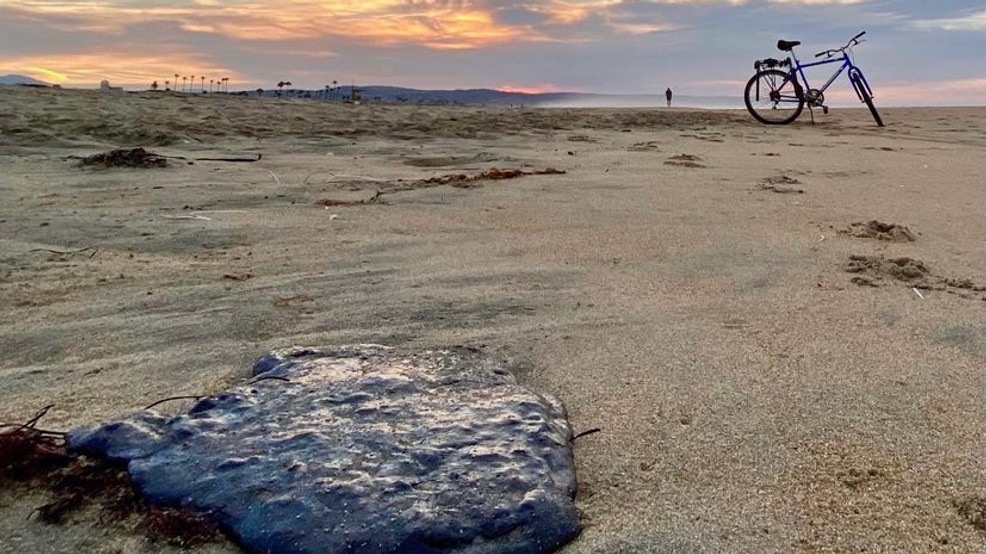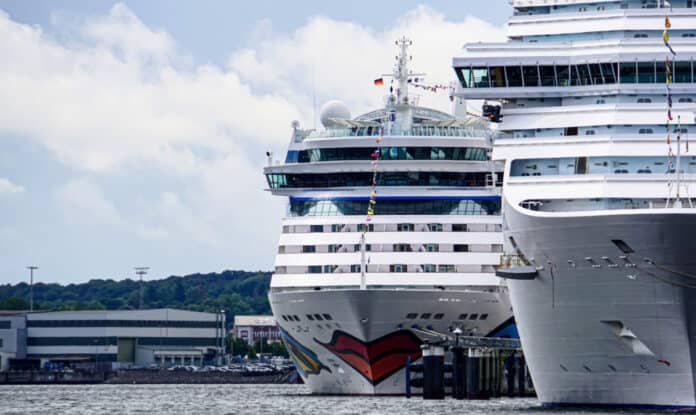Russia's Black Sea Oil Spill: Impact And Beach Closures

Table of Contents
Environmental Consequences of the Black Sea Oil Spill
The ecological repercussions of this oil spill are profound and long-lasting, impacting the delicate balance of the Black Sea ecosystem.
Damage to Marine Life
Oil spills pose a severe threat to marine life, and the Black Sea is no exception. The viscous nature of crude oil suffocates marine organisms, impacting their ability to breathe and feed.
- Birds: Oil coating feathers reduces buoyancy and insulation, leading to hypothermia and drowning. Species like the Black Sea gull and various migratory birds are particularly vulnerable.
- Fish: Oil contamination affects the gills of fish, leading to respiratory problems and death. Spawning grounds and crucial habitats are also destroyed, impacting fish populations for years to come. The impact on commercially important fish species like anchovy and sprat has significant economic ramifications.
- Mammals: Marine mammals, including dolphins and seals, are affected by ingestion of oil and its toxic components, leading to severe health problems and potentially death. The disruption of their feeding patterns and habitats exacerbates the situation.
- Black Sea Biodiversity: The spill significantly threatens the already stressed biodiversity of the Black Sea, harming countless species and disrupting complex food webs. The long-term effects on marine biodiversity are yet to be fully understood.
Water Contamination and Pollution
The oil spill introduces numerous toxic pollutants into the Black Sea's waters. These pollutants include polycyclic aromatic hydrocarbons (PAHs), known carcinogens, and other harmful substances that persist in the environment for years.
- Water Quality: The contamination significantly impacts water quality, making it unsafe for various uses. This poses a direct threat to aquatic life and also affects the suitability of the water for recreational activities.
- Drinking Water Sources: The proximity of the spill to potential drinking water sources raises serious concerns about water safety and necessitates extensive monitoring and treatment efforts. Long-term effects on human health linked to water contamination require further investigation.
- Environmental Remediation: The cleanup process is complex and costly, involving various techniques like physical removal of oil, bioremediation (using microorganisms to break down oil), and dispersion agents. The effectiveness of these methods and their long-term environmental impacts are subject to ongoing evaluation.
Coastal Ecosystem Degradation
The Black Sea's coastal ecosystems are particularly vulnerable to oil spills. The impact extends beyond the immediate spill area, affecting a wide range of habitats.
- Coastal Erosion: Oil can accelerate coastal erosion, destabilizing beaches and dunes, and damaging critical habitats.
- Habitat Destruction: Wetlands, seagrass beds, and other sensitive coastal habitats are severely impacted, affecting the species that rely on them for survival. The destruction of these habitats disrupts the delicate ecological balance, potentially leading to irreversible changes.
- Ecological Impact: The long-term ecological consequences of habitat destruction are difficult to predict, but they are expected to be significant and long-lasting. Recovery of affected ecosystems may take decades.
Beach Closures and Tourism Impact
The oil spill has necessitated the closure of numerous beaches along the Black Sea coastline, leading to significant economic consequences.
Extent of Beach Closures
The extent of beach closures varies, with [Insert specific beach names and regions if known]. The duration of these closures remains uncertain, depending on the effectiveness of cleanup efforts and assessments of water quality. [Include maps or visuals if available.]
Economic Consequences for Tourism
The beach closures have dealt a severe blow to the tourism sector, impacting local businesses and livelihoods.
- Tourism Revenue: The loss of tourism revenue is substantial, affecting hotels, restaurants, tour operators, and other businesses dependent on the tourism industry.
- Job Losses: The economic downturn has led to job losses and financial hardship for many individuals and families who rely on the tourism sector for their income.
- Economic Impact: The overall economic impact of the spill and subsequent beach closures will be felt for years to come, impacting both local economies and national revenue streams.
Public Health Concerns
The oil-contaminated beaches pose significant public health risks. Contact with oiled waters or sand can lead to skin irritation, respiratory problems, and other health issues.
- Beach Safety: Public health authorities have issued warnings and advisories regarding beach safety, urging people to avoid contaminated areas.
- Oil Exposure: Exposure to oil and its toxic components can have long-term health consequences, impacting individuals who live in affected areas or visit contaminated beaches.
- Public Health Response: Public health agencies are monitoring the situation and providing guidance to minimize potential health risks associated with the oil spill.
Cleanup Efforts and International Response
The cleanup of the Black Sea oil spill is a complex and challenging undertaking.
Cleanup Strategies and Challenges
Various cleanup methods are being employed, including:
- Physical Removal: Manual and mechanical removal of oil from beaches and the water's surface.
- Bioremediation: Utilizing microorganisms to break down oil, a more environmentally friendly approach.
- Dispersants: Chemicals that break down oil into smaller droplets, facilitating its dispersion and degradation. The challenges include the vastness of the affected area, the unpredictable nature of the sea, and the potential for secondary environmental damage from cleanup methods themselves.
International Cooperation and Aid
International cooperation is crucial in tackling the environmental crisis caused by the oil spill. [Mention specific countries or organizations if known and their contributions]
Conclusion: Understanding the Long-Term Impacts of Russia's Black Sea Oil Spill
Russia's Black Sea oil spill has had devastating consequences, causing significant environmental damage, beach closures, and economic hardship. The long-term impacts on marine life, coastal ecosystems, and human health are still unfolding. Understanding these consequences is vital for implementing effective cleanup strategies, fostering international cooperation, and preventing future occurrences. Stay informed about the ongoing recovery efforts following Russia's Black Sea oil spill and advocate for stronger environmental regulations to protect this precious ecosystem. Learn more about the ongoing impact at [insert links to reputable sources here].

Featured Posts
-
 Meet Amanda Clive And The Kids A Day In The Life Of Our Farm Next Door
Apr 30, 2025
Meet Amanda Clive And The Kids A Day In The Life Of Our Farm Next Door
Apr 30, 2025 -
 Which Cruise Lines Does Carnival Own A Comprehensive Guide
Apr 30, 2025
Which Cruise Lines Does Carnival Own A Comprehensive Guide
Apr 30, 2025 -
 Cassidy Hutchinson Memoir A January 6th Insiders Account
Apr 30, 2025
Cassidy Hutchinson Memoir A January 6th Insiders Account
Apr 30, 2025 -
 Kamala Harris A Look At Her Recent Activities And Impact
Apr 30, 2025
Kamala Harris A Look At Her Recent Activities And Impact
Apr 30, 2025 -
 Analiz Vstrechi Rasstoyanie Mezhdu Trampom I Zelenskim I Ego Znachenie
Apr 30, 2025
Analiz Vstrechi Rasstoyanie Mezhdu Trampom I Zelenskim I Ego Znachenie
Apr 30, 2025
